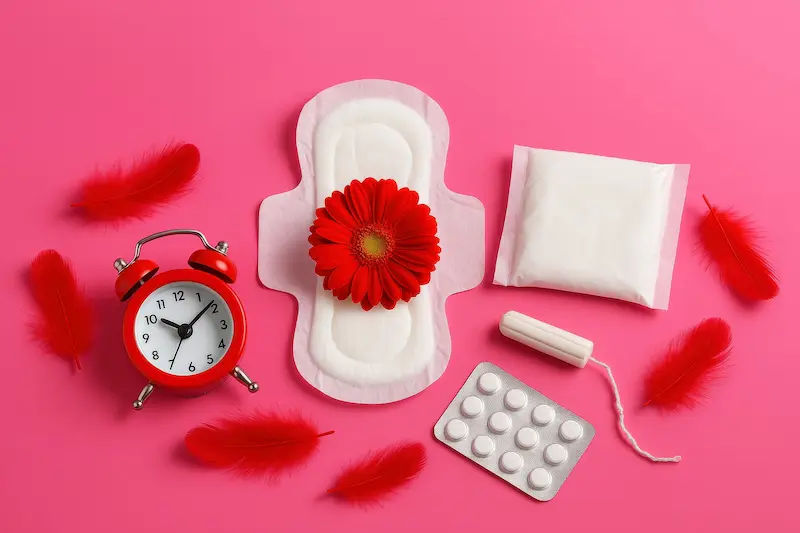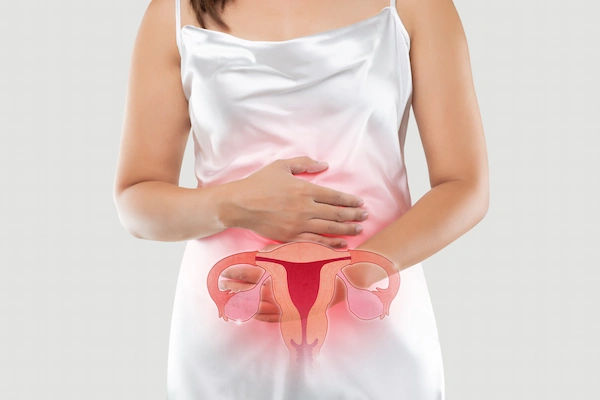How to Reduce PMS Symptoms Naturally?
The symptoms of PMS are common, but they bring different physical and psychological changes. So, learn how to manage them for a better experience.

Written by
Last updated on 13th Jan, 2026
Premenstrual Syndrome (PMS) is a common condition amongst menstruating women where they undergo some physical and emotional changes before their period begins. While the reason behind this is still not clear, specific changes in hormones like oestrogen and progesterone that occur during this time can be the reason. Usually, women suffer from headaches, digestive problems, mood swings, anxiety, depression, etc., due to PMS, and caffeine, alcohol, laziness, and stress can aggravate this condition. However, the intensity and duration vary from person to person, depending on their physical condition and lifestyle. So, it is wise to seek medical treatment if the condition is severe.
Lifestyle Modifications
A healthy lifestyle can contribute mainly to controlling the painful symptoms of PMS. Regular exercise will help decrease the discomfort as it releases endorphins, natural mood enhancers. This will reduce the primary PMS symptoms like mood swings, fatigue, anxiety, etc.
Today's extremely stressful life is also a reason for the exacerbation of PMS symptoms. To get rid of the fatigue and mood swings, adequate sleep is essential. It helps to calm the nerves and mind, reducing anxiety. Yoga, meditation, Zumba, etc., can also help reduce stress.
An unhealthy diet is another factor that triggers PMS. The only solution is to eat a balanced diet containing lots of fruits and vegetables, drink adequate water, and avoid being on an empty stomach for longer durations. If the stomach is not filled on time, it may lead to headaches and irritation. However, intake of caffeine, salt, sugar and alcohol should be limited as these may also cause irritation.
Dietary Recommendations
Some essential nutrients may help to alleviate PMS symptoms. But they may have side effects like nausea, abdominal discomfort, constipation, etc. So, it is advisable to consult a healthcare provider before taking any supplement. Some simple advisable nutrients are -
Vitamin B6
Calcium
Omega-3 fatty acids
Vitamin D
Iron
Magnesium
Certain foods must be included in a woman's diet to combat PMS, like –
Fruits
Vegetables
Whole grains
Lean proteins
Nuts
Beans
Chamomile tea
On the other hand, foods that trigger the PMS and hence must be avoided are –
Alcohol
Caffeine
Red meat
Processed foods
Spicy foods
Sugary foods
Salty foods
Herbal and Natural Remedies
Many women prefer to get relief naturally rather than depending on medications and their side effects. So, a non-drug approach is also becoming popular nowadays. Natural remedies like herbs and minerals are doing wonders. Some common herbal supplements to prevent PMS are –
Chasteberry
Dandelion leaf tincture
St. John's wort
Black cohosh
Evening primrose oil
Apart from herbal remedies, some alternative therapies are also quite effective nowadays. These mainly include natural methods like acupuncture and yoga to alleviate the symptoms. By stimulating specific points in the body, acupuncture can help reduce pain, whereas yoga reduces stress and helps relax the body. One can definitely feel good both emotionally and physically with these therapies. But the risk remains. Hence, a consultation with a healthcare professional is essential before starting any other kind of therapy.
Mind-Body Practices
Practices that help calm the mind and body can reduce PMS symptoms. The best-suited ones for this are yoga and meditation. Yoga reduces stress by relieving muscle tension and improving mood through gentle movements and deep breathing. Whereas meditation relaxes the body, reduces irritability, and controls emotions and anxiety. Another primary benefit of yoga and meditation is that they improve sleep quality.
Acupuncture is another effective way to treat PMS symptoms. It involves inserting thin needles at specific points on the body and balancing the energy flow, resulting in natural healing. It can relieve cramps and pains and reduce anxiety. However, this is advisable only after consultation with a licensed acupuncturist or a healthcare person.
Another effective treatment of PMS symptoms is aromatherapy. It helps to control emotional disturbances like anxiety and depression. Even physical problems like pain and bloating can be cured through this. The process is to inhale essential oils. Some commonly used ones are –
Lavender
Chamomile
Rose
Clary Sage
Hydration and Detoxification
Maintaining proper hydration is essential to prevent PMS symptoms. It makes sure that the body's electrolyte level remains normal, thus reducing the possibility of muscle cramps and bloating during periods. Some benefits of staying hydrated during menstruation are –
Uplifts energy level
Helps in digestion
Alleviates constipation
Reduces cramps and bloating
Improves mood
Some natural detox methods for PMS relief are –
Avoiding overeating
Intake of healthy fats
Applying heat
Taking peppermint tea
The Role of Vitamins and Minerals
Proper intake of vitamins and minerals plays a crucial role in reducing PMS symptoms. So, a balanced diet with adequate supplements is essential. It helps to balance the hormones and reduce inflammation, resulting in overall well-being. Each component has its benefits.
Vitamin B6: It improves mood, irritability, anxiety, forgetfulness and bloating. Foods that are rich in vitamin B6 are potatoes, fish, fruit, poultry and fortified cereals.
Magnesium: Adequate intake of magnesium may reduce bloating, fluid retention and breast tenderness. Leafy green vegetables, legumes, nuts and seeds and avocados are rich in magnesium.
Calcium: This will help improve depression, fatigue and cravings. Calcium is present in milk, yoghurt, cheese, bread and orange juice.
Vitamin D: This also helps reduce PMS symptoms, which are generated by exposure to sunlight. Egg yolks and fatty fish are also rich in vitamin D.
Omega-3 fatty acids: Primarily found in fish, this component can vastly reduce the PMS symptoms.
Iron: It helps to create haemoglobin, which women of childbearing age need the most. Poultry, seafood, dried fruits, etc., have high iron.
Tracking and Understanding Your Cycle
Typically, a menstrual cycle lasts for 28 days, but it varies from one person to another. Tracking the cycle is necessary to identify one's most fertile period, the duration of the menstruation, and the time when the PMS symptoms occur. So, keeping a PMS journal helps as it will help to recognise the menstrual pattern and take the necessary actions. Also, with this journal, women can manage their symptoms better and determine if any early intervention is needed.
When to Seek Professional Help?
A doctor needs to be consulted when the PMS aggravates and results in Premenstrual Dysphoric Disorder (PMDD). A severe PMS condition can primarily affect one's daily life. Symptoms that denote the severity are lack of concentration, extreme mood swings, intense painful cramps, joint pains, etc. However, it isn't easy to gauge when PMS will become PMDD. Some treatment options for this are –
Practising aromatherapy
Trying meditation as and when needed
Taking a warm bath
Eating a proper diet, preferably multiple times a day
Administering herbal supplements
Exercising or practising yoga regularly
Opting for acupuncture and other therapies
Getting adequate sleep
However, a doctor's consultation will be necessary if the symptoms are affecting one's lifestyle, preventing her from performing her daily activities. In such cases, antidepressants may be needed as one can think of fatal self-harm. Such cases must be handled with utmost care and supervision. Women suffering from PMDD need special attention.
Conclusion
Though PMS symptoms are a common problem nowadays, they should not be neglected if they hamper one's daily life. These symptoms are usually harmless and can be cured with natural remedies like adequate sleep, a balanced diet, exercise, etc. Only in severe cases do a doctor's advice and medication become necessary. A stressful lifestyle is one of the primary causes of PMS, so embracing a healthier lifestyle is essential to get long-term benefits. One can always avoid the symptoms with proper hydration and exercise habits since becoming medication dependent is not always wise, as it has side effects.
Consult Top Obstetrics and Gynaecologist
Consult Top Obstetrics and Gynaecologist
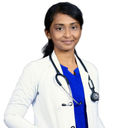
Dr. Divyashree S
Obstetrician and Gynaecologist
7 Years • MBBS, MS (OBG)
Bengaluru
Apollo Clinic, JP nagar, Bengaluru

Dr. Ramya G S
Obstetrician and Gynaecologist
11 Years • MBBS, DGO - Obstetrics & Gynaecology, DNB - Obstetrics & Gynaecology
Bengaluru
Apollo Clinic, JP nagar, Bengaluru

Dr. Mona Yadav
Obstetrician and Gynaecologist
19 Years • MBBS, MD (Obstetrics & Gynaecology)
Dombivli
Nulife multispeciality, Dombivli
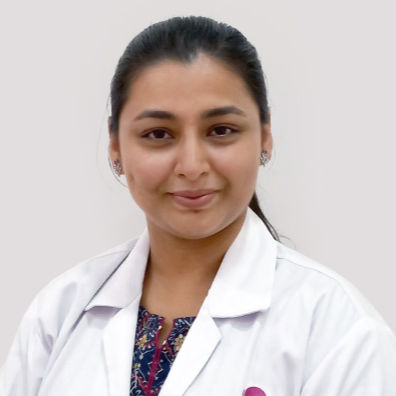
Dr. Harshitha B R
Obstetrician and Gynaecologist
11 Years • MBBS, DGO( OBS & GYN)
Bengaluru
Apollo Clinic, JP nagar, Bengaluru
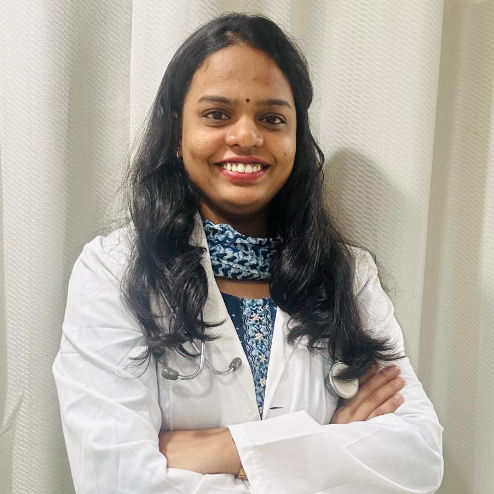
Dr. Soumya P
Obstetrician and Gynaecologist
6 Years • MBBS,MS (OBST & GYNAE)
Bengaluru
Apollo Clinic, JP nagar, Bengaluru

